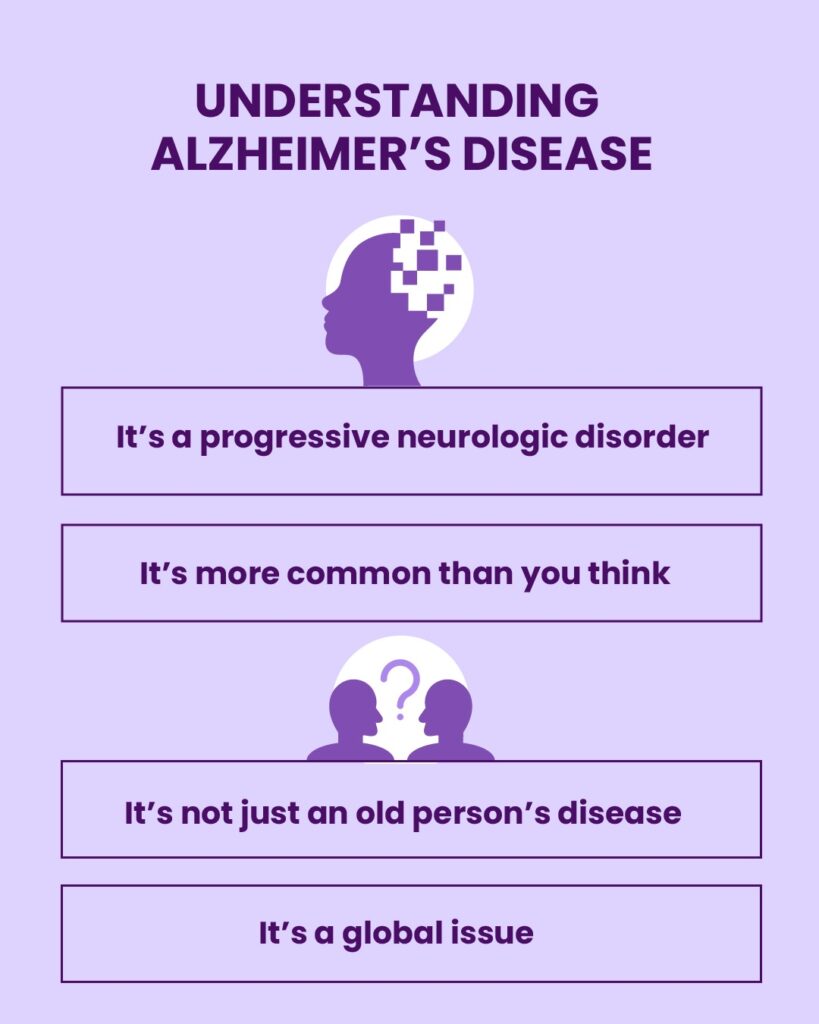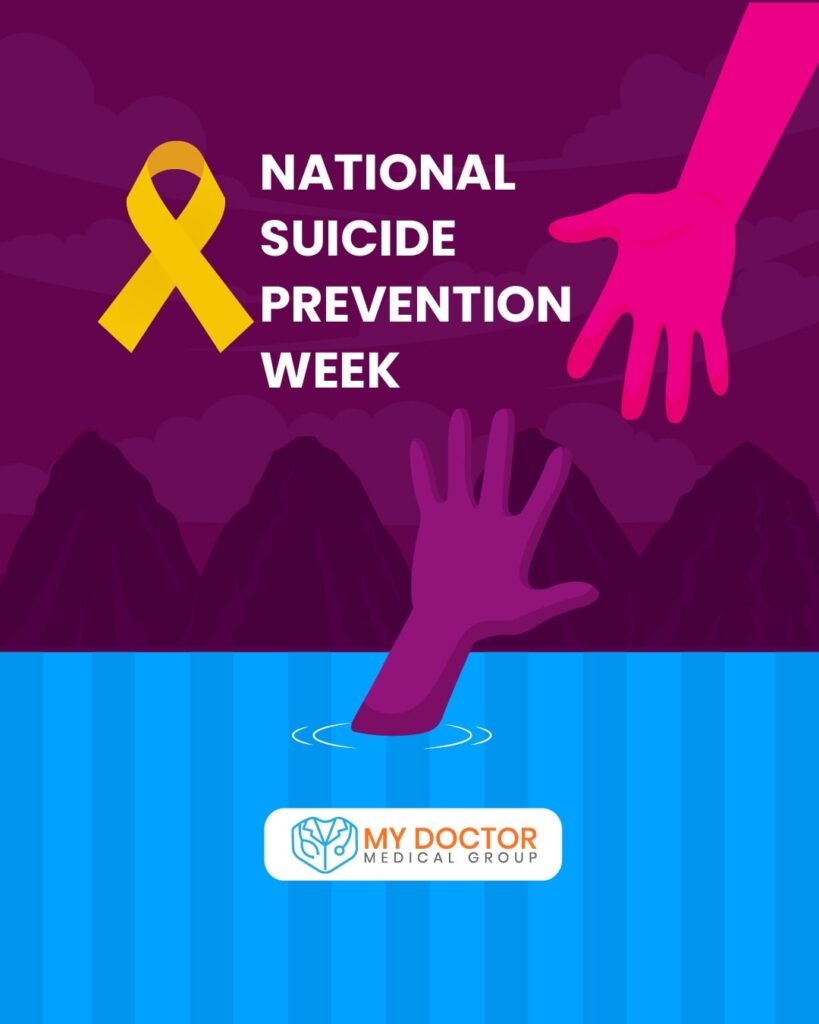Alzheimer’s & Brain Awareness Month: Uncovering Progress in Alzheimer’s Research
People recognize June as a crucial month in the global health calendar because it’s Alzheimer’s & Brain Awareness Month. During this period, they dedicate their efforts to raising awareness, encouraging donations, and supporting Alzheimer’s research. On June 21, the summer solstice, people around the world participate in various fundraising activities. Additionally, they light up more than 800 structures globally in teal to enhance Alzheimer’s awareness.
Background of Alzheimer’s Awareness Month
Organizers initially set up Alzheimer’s Awareness Month to raise both funds and awareness for Alzheimer’s disease and other related forms of dementia. The month brims with events, such as the 50-Mile Run Challenge on Facebook, in which people can join and assist in fundraising.

Alzheimer’s disease is a progressive neurologic disorder that causes brain shrinkage (atrophy) and brain cells to die. It’s the most common cause of dementia — a continuous decline in thinking, behavioral, and social skills that affect a person’s ability to function independently.
- It’s More Common Than You Think: You might be gobsmacked to learn that Alzheimer’s is the sixth leading cause of death in the United States.
- It’s Not Just an Old Person’s Disease: Alzheimer’s can strike earlier than you might think. Although it’s more common in people over 65, approximately 5% of people with the disease have early onset Alzheimer’s, which often appears when someone is in their 40s or 50s.
- It’s a Global Issue: Alzheimer’s is not just a problem in the US; it’s a worldwide issue that affects millions of families across the globe.
Stages of Alzheimer’s: Early, Moderate, Severe
- Preclinical Alzheimer’s disease: This is the stage before any symptoms become apparent, and can only usually be identified in research settings.
- Mild cognitive impairment (MCI) due to Alzheimer’s disease: People with MCI have mild changes in their memory and thinking abilities, which may not significantly interfere with everyday activities but can be noticed by the person affected or others.
- Mild dementia due to Alzheimer’s disease: At this stage, people may experience memory loss, mood changes, and difficulty with word-finding, among other symptoms.
- Moderate dementia due to Alzheimer’s disease: Memory loss and confusion grow worse, and people begin to have problems recognizing family and friends.
- Severe dementia due to Alzheimer’s disease: In the final stage, individuals lose the ability to respond to their environment, carry on a conversation, and, eventually, control movement
The Latest in Alzheimer’s Research
The National Institute on Aging (NIA) has made considerable progress in Alzheimer’s and related dementias research over the past year. Key accomplishments include identifying new biological mechanisms that may lead to dementia, discovering ways to effectively diagnose dementia, improving the quality of life and care for people with dementia, and better understanding health disparities to eliminate them. They also developed the first commercial blood test of amyloid protein, a biomarker for Alzheimer’s. Furthermore, the FDA’s recent accelerated approval of aducanumab, the first drug to receive any form of FDA approval to treat Alzheimer’s since 2003, was a significant breakthrough. The NIA has also identified a need for $226 million in additional resources for new Alzheimer’s and related dementias research, with the overall resources needed totaling $3.4 billion.
How Can You Contribute to Alzheimer’s Awareness Month?
Everyone can contribute to this cause, not just those in the medical field. During Alzheimer’s & Brain Awareness Month, there are multiple ways to participate. You can take the Purple Pledge, share your stories on social media, fundraise on The Longest Day (June 21), or even organize a team for the Walk to End Alzheimer’s.
Wrapping It Up
Alzheimer’s & Brain Awareness Month serves as a potent reminder of the importance of our collective efforts in combating Alzheimer’s disease. This disease is a complex and challenging one, affecting millions of people and their families worldwide. The progressive nature of Alzheimer’s, which sees individuals gradually losing their memory, thinking, and independence, emphasizes the need for continued research and intervention.
In recent years, researchers have made considerable strides in Alzheimer’s research, identifying novel biological mechanisms that could cause dementia, developing the first commercial blood test for an Alzheimer’s biomarker, and securing approval for a new treatment option. These advancements provide hope and demonstrate the concrete results of continued investment in research.
However, the fight against Alzheimer’s disease extends beyond laboratories and clinics. Each one of us can contribute to this cause. During Alzheimer’s & Brain Awareness Month, and indeed throughout the year, there are multiple ways we can participate. Whether it’s by sharing our personal stories, fundraising, wearing purple, supporting caregivers, or merely raising awareness in our communities, every action counts.
The challenges posed by Alzheimer’s disease are immense, but so is our capacity for innovation, empathy, and action. As we push forward in our efforts to understand, treat, and eventually cure this disease, let’s remember to support those affected by Alzheimer’s and their families, and raise our voices for increased awareness and funding. Together, we can make a difference in the fight against Alzheimer’s disease.
Resources
- https://alzfdn.org/alzawarenessmonth/
- https://www.alz.org/events
- https://www.nia.nih.gov/research/blog/2021/07/transforming-dementia-research-fy-2023-nih-progress-report-and-bypass-budget
- https://www.leisurecare.com/resources/alzheimers-awareness-month/

